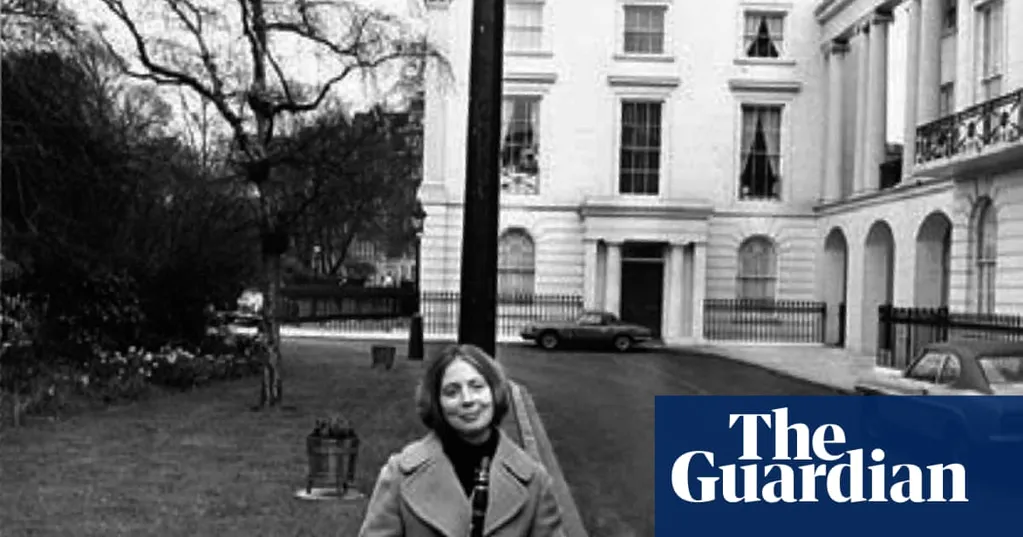Amelia Freedman, who has died aged 84, not only commissioned hundreds of new works from leading composers but also founded a stellar ensemble to give the works superlative performances. While studying clarinet at the Royal Academy of Music (RAM) she was involved in an initiative to form an ensemble. On being told by the other players that she was the only person who could efficiently organise such a venture, she relinquished her playing role to take over the administration of the ensemble.
Her resilience was tested from the start by resistance from the RAM principal, Sir Thomas Armstrong (who much later, by her account, tried to take credit for offering support). Prevented from using the academy's name in the title, she alighted (at the suggestion of the promoter John Woolf) on the Nash Ensemble, after the architect John Nash, designer of the imposing terraces adjacent to the conservatoire.
Contemporary music was always intended to be a central focus of the ensemble, and over the following six decades, under Amelia's aegis, 330 works by 225 composers were premiered. Her organisational skills and imaginative programme planning, based on a remarkable knowledge of the obscurer corners of the repertory, were put to good use, too, in her other major appointments: as artistic director of the Bath international festival (1984-93), the Bath Mozartfest (from 1995) and Bachfest (from 2012); and head of classical music at the Southbank Centre (1995-2006).
The daughter of Miriam (nee Claret) and Henry Freedman, Amelia was born in north London and educated at St George's school, Harpenden, and Henrietta Barnett school, in Hampstead Garden Suburb, before obtaining the LRAM and ARCM diplomas in piano and clarinet respectively.
Between 1961 and 1972 she taught at a succession of schools, and a minor claim to fame was staked by her appearance as a backing singer in the Beatles' film A Hard Day's Night (1964).
But it was with the foundation of the Nash that she made her mark as a one-woman powerhouse, an administrator and fundraiser nonpareil. Her energy and determination in the cause of contemporary music were boundless. Even in straitened times she never gave up charming, persuading and cajoling as necessary to achieve the desired result. Among the many composers from whom she elicited compositions were Harrison Birtwistle, Peter Maxwell Davies, David and Colin Matthews, Julian Anderson, Alexander Goehr and Simon Holt. While British composers loomed large, she also commissioned from Elliott Carter and Tristan Murail, arranged for several Hans Werner Henze premieres in the UK and had a good relationship with Henri Dutilleux.
The Nash made its first appearance outside the RAM at the American embassy, in a concert organised by the Park Lane Group and conducted by Graham Treacher in 1965. It made its formal debut at the Queen Elizabeth Hall in 1967 and at the Wigmore Hall in the same year. It was soon performing for music societies and festivals throughout Britain and Europe. The ensemble had a close relationship with the BBC from 1968: many studio and live recordings were to follow. Amelia devised enticing themed programmes for the Wigmore Hall, where the Nash became a resident chamber ensemble in 2010. Their US debut was at the Alice Tully Hall, New York, in 1983, and they subsequently began worldwide tours.
A trump card Amelia held in her wooing of so many of the world's leading composers lay in their confidence that, with the Nash, they would be assured exemplary performances. Other ensembles have commendable track records with commissions; Amelia and the Nash were in another league.
Supported by Graham Pauncefort's modest independent label CRD, the Nash was able from the start to explore adventurous repertory including music by Franz Krommer, Anton Arensky and Johann Nepomuk Hummel. Then came Ted Perry's Hyperion label, on which the ensemble was able to make inroads into British composers such as Benjamin Britten, Constant Lambert, Arnold Bax, Arthur Bliss, Ralph Vaughan Williams and Frank Bridge. Other labels such as Virgin Classics, NMC, Black Box and Signum were later proud to have the Nash on their roster too. It has been announced that the ensemble will continue under the artistic direction of Simon Crawford-Phillips and Adrian Brendel.
While the Bath Mozartfest was nominally devoted to the work of the Viennese master, under Amelia's stewardship the repertory embraced music from the Renaissance to the 21st century. Her catholic tastes and administrative skills informed her incumbency at the Southbank Centre, a period notable for the institution's innovative repertoire and lateral thinking. One significant innovation was her appointment of an organ curator to oversee renovation of the Royal Festival Hall's instrument and to restore the tradition of an organ recital series.
In addition to the above roles, she was at different times engaged as a musical adviser to the Israel festival, the Philharmonia Orchestra, the London Symphony Orchestra and the Barbican. Among the many honours she was awarded was the honorary membership of the Royal Philharmonic Society last year.
Her husband, Michael Miller, a devoted and affable presence by her side in concert halls - even if he patently failed to share her enthusiasm for some of the more dissonant contemporary scores - died in 2017. She is survived by their three children, Andrew, Robert and Emma.
